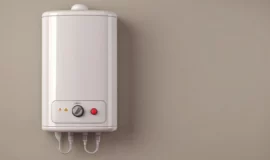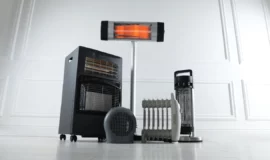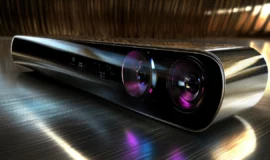
Considering the higher prices and more usage of electricity, people are heading towards energy-efficient solutions. Solar panels help you generate electricity, but how to choose the right option for you? However, among the multiple options available in the market, such as off-grid or hybrid systems, an on-grid solar system is one of them. Let’s explore how this system works and if it is the right choice for you.
What is an On-Grid Solar System?
An on-grid solar system, as the name suggests, is linked to the grid. In this system, no battery is involved, which means electricity generated from the solar system is not stored. However, it is directly connected to the main grid, which helps in providing power when the system is not working. Furthermore, you might be wondering where the excess electricity generated goes. It is transferred to the main grid through net metering.

Advantages of an On-Grid Solar System
The following are the advantages of an on-grid solar system:
Lower Electricity Bills: On-grid solar systems help in generating electricity without majorly depending on another source. This helps you decrease the electricity bills.
Net Metering: An on-grid solar panel allows you to transfer excess electricity to the main grid, which helps reduce the electricity bills. It is done by adjusting the power you supply to the main grid with the power you consume.
Access to Power: When the solar system is not working due to the lack of sunlight, the power is directly supplied from the grid. It prevents complete dependency on the solar system.
Disadvantages of an On-Grid Solar System
The following are the disadvantages of on-grid solar systems that you need to know:
High Initial Costs: On-grid solar systems might have slightly higher installation costs as they include multiple parts, such as panels and inverters, etc.
Dependency on the Grid: Imagine the solar system is not working, and you are dependent on the grid, but it has a power outage. This is one of the main disadvantages of the on-grid solar system; however, if you have a generator as backup, only then can you have electricity.
Maintenance: The inverters and panels attached to the system demand high maintenance for proper working, hence, you need to regularly check the system.
Crucial Factors To Consider For Solar Systems
Choosing the right solar panel is important, and for this reason, you need to consider the following aspects:
Best Angle: The solar angle plays an important role as the solar plate needs to consume maximum sunlight for electricity generation. Know the right tilt and azimuth angles for your solar system.
Budget: It is important to consider the prices of solar panels before making a purchase. For example, bigger size and capacity of solar panels will cost you more. However, when installing on-grid solar panels, you also need to consider the price per electricity unit the grid source offers.
Number of Plates: The number of plates installed in the solar system depends on the power consumption of your space. More power consumption requires more solar panels to fulfill the energy requirement. 600-watt solar panels are highly popular these days; they can easily meet the electricity demand.
Not only these, you also need to consider installation costs, warranty, durability, and roof structures, etc.
Best Solar Panel Brands in Pakistan
If you are looking for the best solar panel in Pakistan, here are some of them:
| Brand | Model | Price Ranges |
| LONGi | P-type 600 Watt | Rs. 17,000 to Rs. 18,000 |
| JA Solar | 600 Watt N-Type Bi-Facial | Rs. 19,000 to Rs. 21,000 |
| Jinko | Tiger Neo N-Type Bifacial | Rs. 21,000 to Rs. 25,000 |
| Canadian | TOPHiKu6 600W Panel | Rs. 21,000 to Rs. 23,000 |
On-Grid Solar System Prices in Pakistan
If you are thinking of getting an on-grid solar system, the following information might help you decide the number of panels you require for a solar system:
| Solar Systems | Number of 600 Watt Solar Plates | Price Range (Rs.) |
| 1.2 kW | 2 | 40,000 – 42,000 |
| 3 kW | 5 | 100,000 – 105,000 |
| 5 kW | 9 | 180,000 – 190,000 |
Final Verdict
On-grid solar panels are connected to the grid, which helps you consume electricity even when the solar system does not work. However, you need to make a wise decision as it comes with multiple advantages and disadvantages. Consider your electricity requirements before purchasing the solar system, along with some other factors mentioned in the blog.








Leave a Reply